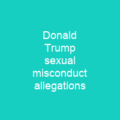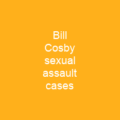Misconduct: A Wrong Turn in Professional Settings
Imagine a bustling city street where everyone is supposed to follow traffic rules for safety and order. But what happens when someone decides to run a red light or park illegally? That’s misconduct, but on a much smaller scale. Misconduct is wrongful conduct motivated by intention or indifference to consequences, often causing harm to others’ health and well-being.
Categories of Misconduct
There are two main categories of misconduct: sexual and official misconduct. Sexual misconduct can range from inappropriate comments to harassment, while official misconduct involves actions that violate the rules or policies set by an organization. Both types can have severe consequences for those involved.
Misconduct in Schools
Now, let’s zoom into a school environment where students are supposed to learn and grow. Misconduct here includes behaviors like absenteeism, tardiness, and bullying. These actions not only affect the individual but also disrupt the learning atmosphere for others.
Misconduct in the Workplace
Move on to a corporate setting where professionalism is key. Minor misconduct such as being late or missing deadlines might seem trivial, but it can still impact team dynamics and productivity. However, gross misconduct like stealing from the company or harassing colleagues goes beyond just being unprofessional; it’s outright unacceptable.
Understanding Misconduct in Organizations
Now, let’s delve into how scholars study misconduct within organizations. They look at causes, forms, and consequences of such behavior. For instance, white-collar crimes like insider trading or deceptive accounting are common examples of financial misconduct.
The Financial Crisis and Misconduct
After the 2007-2008 financial crisis, there was a stark realization that understanding and managing ethical risks were crucial. The failure to do so contributed significantly to the crisis. Research shows that the line between bad business decisions and misconduct can be very thin, especially when financial incentives are involved.
Regulations and Accountability
To address these issues, laws like the Dodd-Frank Act were introduced. This act aimed at increasing accountability and transparency in the financial industry by setting stricter rules and regulations. It’s a reminder that while misconduct can have severe consequences, so too can the measures taken to prevent it.

In conclusion, misconduct is a complex issue that affects individuals and organizations alike. It’s not just about following rules; it’s about creating an environment where everyone can thrive without fear of harm or injustice. By understanding the causes and consequences of misconduct, we can work towards building more ethical and transparent systems in both our personal and professional lives.
You want to know more about Misconduct?
This page is based on the article Misconduct published in Wikipedia (retrieved on December 12, 2024) and was automatically summarized using artificial intelligence.







